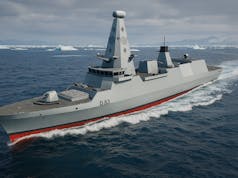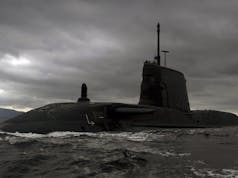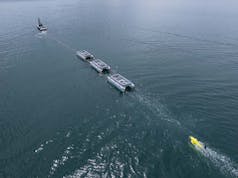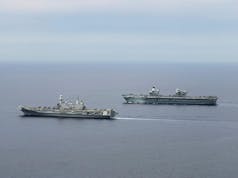The Public Accounts Committee warn that the MoD faces significant pressures to provide the network of programmes, equipment and people, often termed the ‘Nuclear Enterprise’, necessary to provide this continuous at sea deterrent.
They warn that at a time when, across the Enterprise, major organisational and governance changes have still to take full effect, the Department needs to bridge a £2.9 billion affordability gap, ensure it fills identified skills gaps, sustain its supply chain, and make important decisions on significant, high-profile projects.
These include infrastructure upgrades and the defueling and dismantling of the 20 submarines held by the UK.
“If these complex interdependencies are not managed, alongside the many contractual relationships on which the Enterprise depends, the Department’s ability to provide the continuous at sea deterrent will be put at risk.”
Comment from Committee Chair, Meg Hillier MP:
“The pressure bearing down on the Ministry of Defence have been laid bare by my Committee this year.
In January we reported on the challenges the MoD faces in delivering Carrier Strike – a hugely complex, costly programme intended to be at the heart of the national defence for years to come.
In May we highlighted concerns that the MoD could find itself more than £20 billion short of the funding required to buy all the equipment it says it needs.
Last week we recommended action to address the MoD’s ‘make do and mend’ approach to staffing its defence commitments in the face of significant skills shortages in critical trades.
There are ongoing concerns about the MoD’s management of its estate and the sometimes woeful standard of accommodation provided for Forces personnel.
These challenges, taken with the cost, complexity and risks to delivery of the Nuclear Enterprise, give rise to serious questions about the MoD’s ability to meet its national security commitments.
In the past there has been significant slippage across Enterprise programmes. The MoD must now bridge an affordability gap running to nearly £3 billion, fill critical skill gaps and ensure its supply chain is maintained effectively – all at a time of significant uncertainty in international politics and trade.
I am particularly concerned that the infrastructure available to support the Enterprise is not fit for purpose. The UK has 20 submarines awaiting disposal, nine of which contain fuel.
The MoD admits that while it has previously put off dismantling submarines on grounds of cost, this is no longer acceptable on grounds of safety and reputation.
The MoD needs to get on top of this quickly and, in general terms, be more open about progress being made with management and delivery of the submarine-based deterrent.
It must ensure Parliament has the detailed information it needs to make informed and meaningful judgements.”














When will this government realize defence spending should be 3% of GDP and cutting back heavily on overseas aid so that it just represents disaster relief and support to war torn countries i.e. less than £2Billion per annum…
Not going to happen and the probable successor to the current government is more likely to push as much of the current 2% to anything other than real defence capability. Ultimately leading to a statement that due to economic or political circumstances beyond their control Trident has to be scrapped. A fall out with the US and ending of the special relationship could be a likely scenario leading to UK deterrent being scrapped.
https://www.bbc.co.uk/news/uk-politics-45631788
I agree with expat – just not going to happen with the current crop of politicians we have on both sides. If anything, all indications are that Gavin Williamson has lost his fight with Spreadsheet Phil for more money and cuts are rumoured for the upcoming MDP. If true, it’s totally irresponsible!! – how long can cut after cut after cut keep happening???? Shameful!
Making a life onboard subs, in general, could become a major obstacle in the future. Will today’s children still want to participate in any of our armed forces, as ‘Social Practices’ take an even tighter grip on our lives? That is why I suggest the new Dreadnaught subs have much-increased automation and a requirement for a considerable reduction in personnel. Our current four boats depend on a large number of personnel, and that’s possibly okay in the years before renewal, but beyond that time public attitudes may have changed. It’s essential we maintain our independent deterrent, however, that will only be possible if we rely less on personnel and design for increased autonomous operations?
How often must all sources demand an increase to 3per cent of GDP for the defence budget . Is Mrs May and the Bean counter listening . Do they care,
Complete boulder dash!…
It should be noted the audit ‘includes’ decommissioning legacy nuclear subs.
There will be close on 2 dozen to deal with including those that have been laid up for years.
The article is misleading in title, suggesting the 2.9 billion shortfall is for delivering the continuous at sea deterrent.
Another poorly worded title that the anti-trident brigade will use to further their cause.
The MOD will simply save costs by dealing with legacy subs on a one at once basis.
A dozen retired at Devonport, 6 or 7 in Rosyth.
A few de-fuelled but none yet scrapped.
Add four Vanguards that will go the same way giving you near on 2 dozen to deal with.
Whilst they all need dealing with they certainly don’t come under the ‘delivery of nuclead deterrent’ title.
Should be noted also that many are attack subs not CASD.